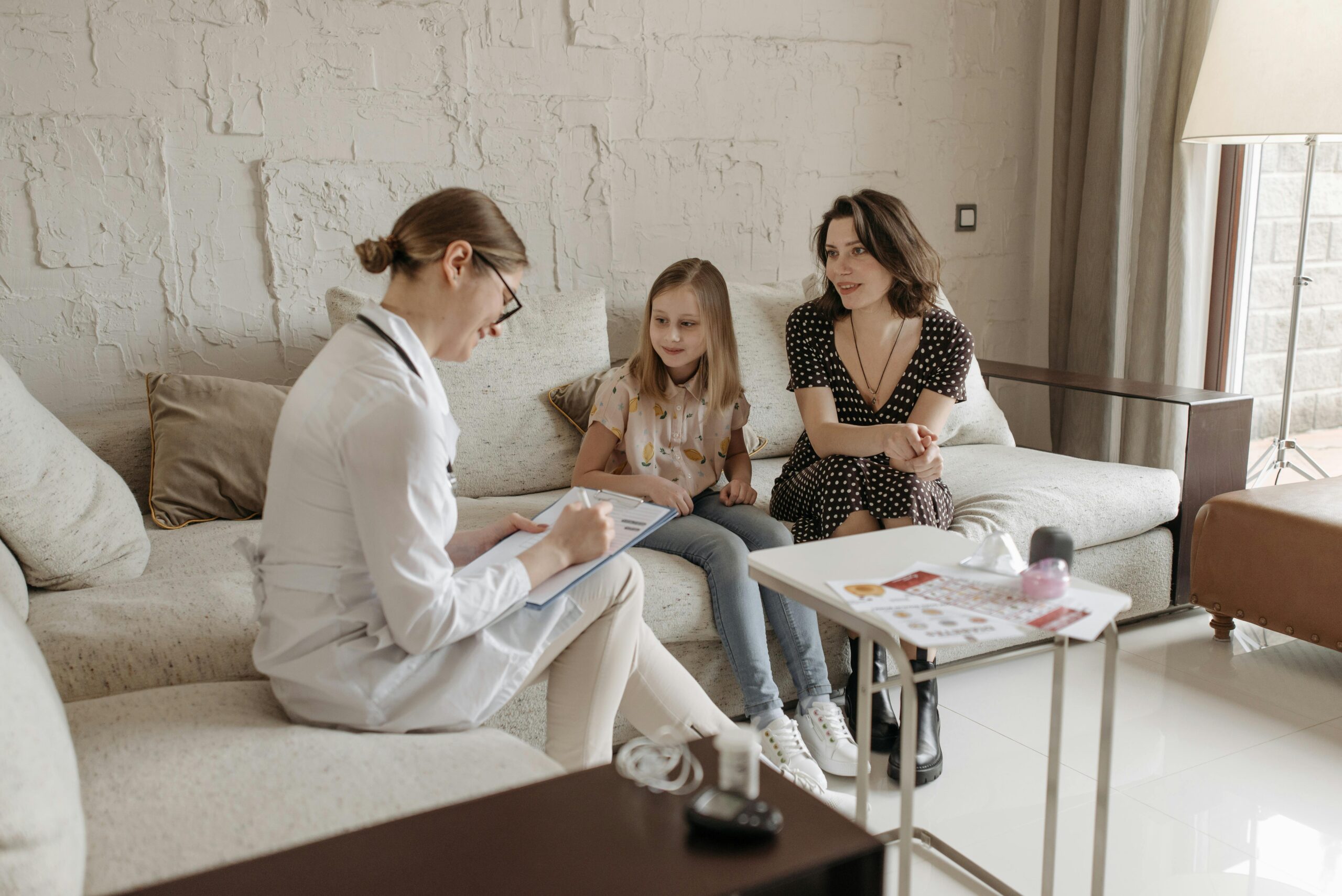
For most of us, family is the most important part of our lives. The people you live with, who are always there for you, who share everything with you. At the same time, family can be problematic or even toxic, they can contribute to substance abuse, and you may not be the only family member with a substance abuse problem. For many of us, that means there are complicated relationships with family and loved ones, especially as we move into treatment and recovery.
Chances are, your family are an important part of your life and therefore, of your recovery. Putting the time and work in to rebuild your relationships, to ensure that you can work as a healthy family, and to undo the harms of substance abuse means you’ll have the tools to live together as a healthy family in recovery.
What is Family Therapy?
Many rehab centers now offer a treatment modality known as “family therapy”. This treatment means that your family is specifically involved in treatment. Here goals include motivation, improving relationships, building healthy communication models inside the family, acknowledging harm done, setting expectations, identifying and reducing negative and unhealthy behavior patterns, and rebuilding a healthy family hierarchy. Depending on the age of family members, involving family in treatment can also include childcare.
Normally this means:
- Behavioral Therapy – Families can undergo behavioral therapy together, including group therapy and therapy with just two participants. This is based on tackling learned behaviors and patterns, so that you can recognize where things go wrong to build better relationships.
- Family System Treatment – This family therapy takes the approach that a family member with a substance use disorder is likely to disrupt the full family hierarchy. That means shifting roles and responsibilities, putting others in charge, and introducing mood swings, violence, and uncontrolled behavior into the family. Family system treatment works to recognize those shifts, to offer insight into how they happened, and to work to move everyone back into roles that fit where they are in life and responsibilities they should be taking on.
- Disease Model – Disease model treatment takes the assumption that addiction spreads from one person to another. If others in the family don’t have problematic relationships with substance abuse, they are likely to have emotional and mental health or behavioral problems as a result of living with someone with an addiction. This treatment means everyone involved receives therapy with the goal of identifying harm caused and providing tools to cope and heal from that harm.
Depending on the type of therapy, family therapy can be about you healing. It can also be about healing the family and every person in it. Behavioral therapy, motivational therapy, group therapy, and counseling come together to help families tackle trauma, to resolve problems, and to learn to work as a team again. What happens will normally depend on how much your family are willing to be involved and how much your family are willing to ask for help themselves.
Get Your Questions Answered
Our expert & caring staff on site are available 24/7. Call us today.
What Does Family Therapy Achieve?

Family therapy operates on the principle that you don’t exist in a vacuum. You impact those around you and the people around you impact you. This means that it’s not enough to remove a negative influence to create healthy relationships, you also have to tackle the harm done by the negative influence of substance abuse. It’s also important to acknowledge that substance abuse doesn’t come out of nowhere and your relationships with family may already have been unhealthy and potentially harmful before substance abuse became a problem. For example, it’s extremely common to have a family history of substance abuse. It’s more likely that you struggle with substance abuse because others in your family do.
Family therapy can help you with:
Building Understanding – You can lightly involve family in your treatment, so they understand what you are doing, why, and how addiction works. This means you’ll get more support and more understanding as you leave treatment and work on rebuilding your life.
Rebuilding Relationships – Taking time to involve family in therapy and them putting in that effort means you’re taking the first steps to rebuild relationships. While you will never have your “pre-addiction relationship” back, you can work to build something new based on trust, mutual effort, and working to improve things together. Having family take part in your treatment means you’ll work to identify issues with family hierarchy and taking responsibility, you’ll look at mutual understanding, and you’ll look at behavior patterns that lead to unhealthy reactions and patterns. You’ll also learn about each other’s communication needs, so you can be there for your family – and they can be there for you.
The idea is to ensure that you communicate and collaborate together from a point of mutual understanding, so you can see where each person is contributing, harming, and taking up space.
Involving Children in Therapy

If you’re struggling with a substance abuse disorder and have children, that addiction has a massive impact on your kids. Looking for a treatment center that offers support for your kids to be involved in treatment can help you to be a better parent, to start to undo the harm of substance abuse on your children, and to improve how you interact with kids.
Here, you’ll typically get:
- Childcare as part of treatment
- Therapy for kids
- Parental therapy and coaching
- Treatment for co-occurring disorders
- Assessment of developmental and mood disorders in children so they can receive early treatment
The younger children are, the less likely they are able to participate in therapy. However, you can bring kids to therapy and benefit from having them there and part of your life as you work to rebuild it. Older children will almost certainly need their own therapy as well and can be involved in your treatment and your recovery.
Rebuilding Family Ties
Family therapy is one of the most important steps you can take to improving your quality of life after treatment. For most of us, family is a major influencing factor in our everyday life. Having a good relationship with family, built on trust, understanding, and stability will contribute to a higher quality of life. That often means involving family in treatment, going to therapy together, working on specific issues and pain points, and treating things that go badly as an opportunity to learn how to work with each other better. Getting help and involving family early can move your loved ones out of the path of substance abuse, can work to undo the harm caused by substance abuse, and gives you opportunities to understand how your family sees you, even through your addiction.
A substance use disorder will impact everyone around you. Even if it’s only for a short time, your emotions, stress levels, emotional regulation, and taking on responsibilities will change. It’s not uncommon in families to see one person taking on all of the household chores and responsibilities while receiving no thanks. It’s not uncommon to build up unhealthy patterns of arguments and making up. It’s not uncommon to build up unhealthy patterns that contribute to everyone feeling bad. Taking steps to acknowledge, resolve, and build new patterns will help everyone involved to improve quality of life and to build healthy relationships that benefit everyone involved.






